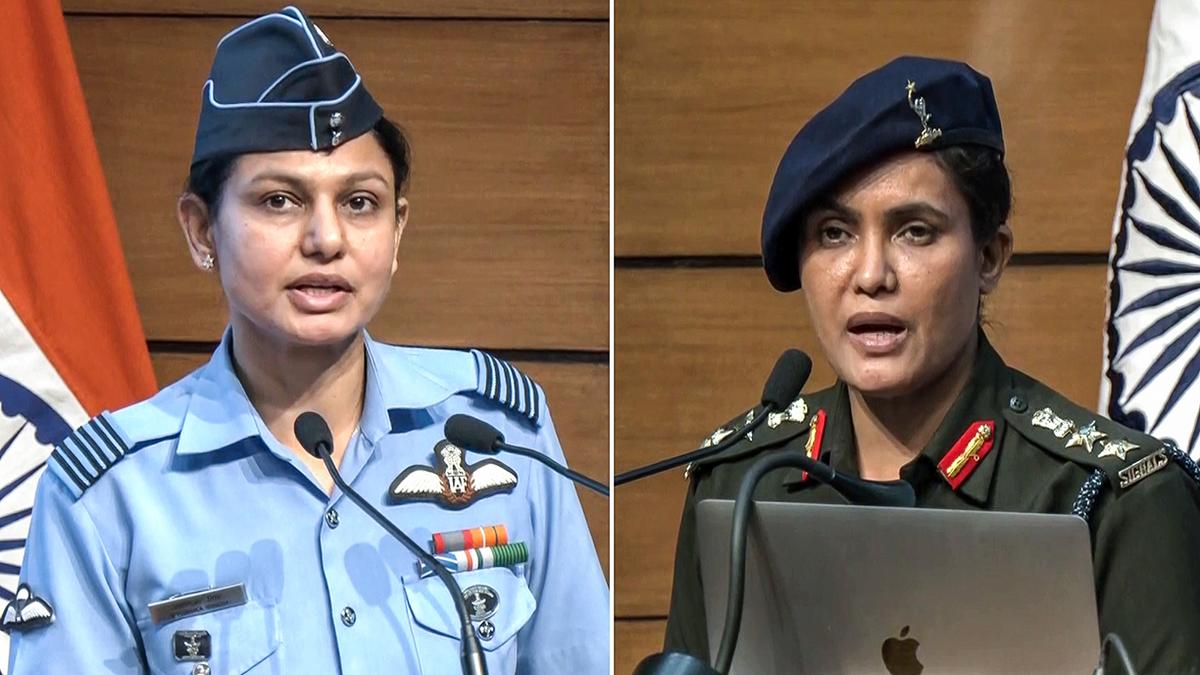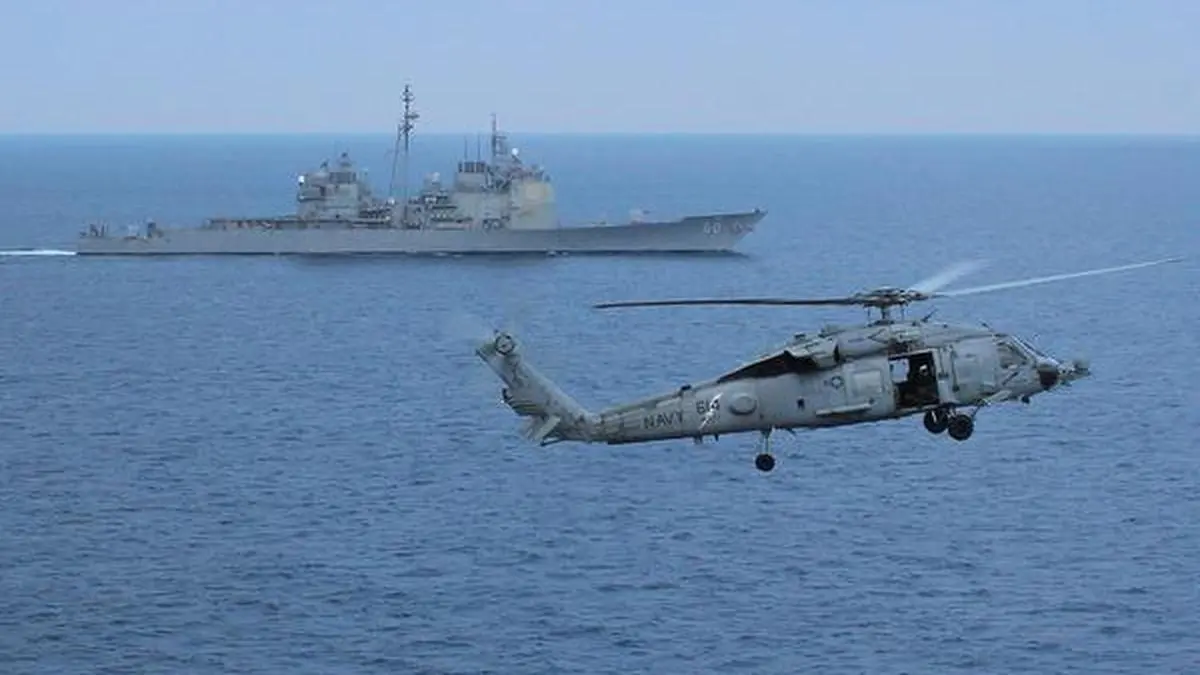[ad_1]

Wing Commander Vyomika Singh (L) and Colonel Sofiya Qureshi (R) address the media regarding ‘Operation Sindoor’
| Photo Credit:
ANI
In ‘Sindoor’, India did not just strike back—it soared with symbolism. Beyond an audacious cross-border strike into Pakistan, executed with surgical precision, was a special briefing to the nation session done by two extraordinary women in uniform – Colonel Sofia Qureshi and Wing Commander Vyomika Singh, and the Foreign Secretary Vikram Misri, a career diplomat of unparalleled gravitas and a Kashmiri Pandit.
The trio transformed a routine military briefing into a calibrated and calculated assertion of power, identity, and narrative control.
Symbolic imagery
The operation’s name, Sindoor, apparently suggested by Prime Minister, Narendra Modi, was laden with cultural and emotional weight. Apart from its sanctity, the crimson ‘Sindoor’ imagery was a reminder that even the gentlest of symbols can, when defiled, become the fiercest of banners.
A small, silver bowl sat upon a white cloth. Within it rested the vermilion. But here, the powder wasn’t untouched. A deliberate spill bled from the bowl, a thick, red pool against the white. The spilled sindoor image gave a clear message: it mirrored the battlefield rite of scattering vermilion on sacred ground. That no atrocity against India’s innocents would go unavenged.
Women At Forefront
Colonel Sofia Quereshi, a luminary of the Indian Army’s Signal Corps, embodied the quiet yet unassailable strength of the nation. As the first woman to lead an Indian Army contingent in a multinational exercise in 2016, she has long been shattering glass ceilings.
“Operation Sindoor was launched to grant justice to families of those killed in the terrorist attack on civilians at Pahalgam on April 22,” she said.
Along with her was Wing Commander Vyomika Singh, a decorated helicopter pilot with the Indian Air Force, who has flown the Chetak and Cheetah helicopters in challenging terrains, including J&K and the North East.
“No civilian or military establishments were targeted,” Singh emphasised. Together the two women transcended symbolic roles once reserved for men.
Voice of Resilience
Vikram Misri was the poignant layer; and his measured articulation – transcending regular sabre wielding rhetoric – set the tone for India’s clear and firm diplomatic stance. And a firm determination to fight cross border terrorism.
“India exercised its right to respond ….,” he said, pointing out that actions were “measured (and) non-escalatory”.
It was a narrative that resonated far beyond the battlefield, proclaiming India’s ascendancy as a global force.
Published on May 7, 2025
[ad_2]
Source link


